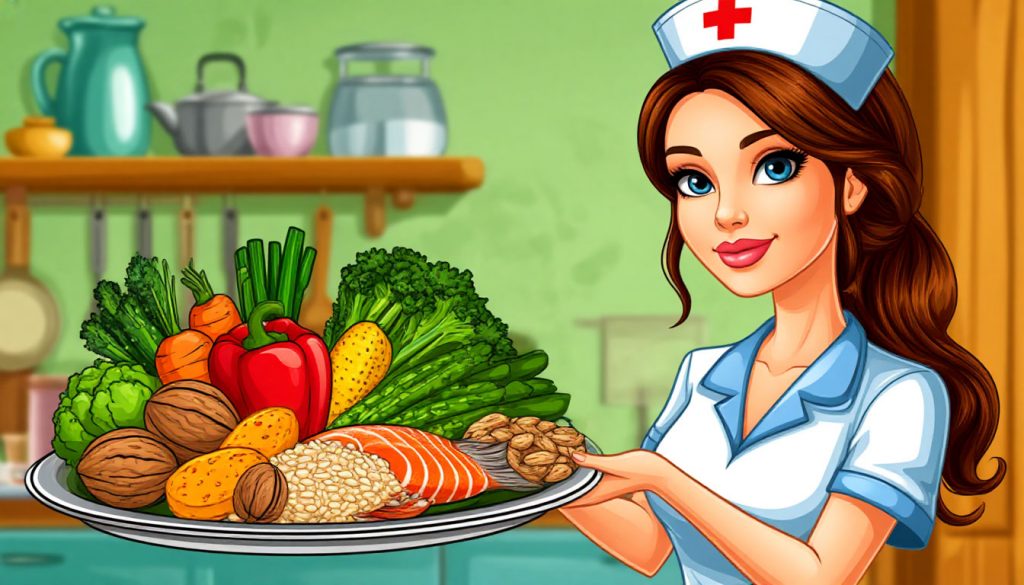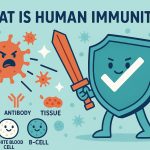Recovering from illness isn’t just about rest and medication — it’s also about rebuilding strength through proper nutrition. Whether you’re healing from a virus, surgery, or a chronic condition, the right foods can help restore energy, repair tissues, and support immunity. This article explains which foods aid recovery and why they matter during the healing process.
Why Nutrition Matters During Recovery
When your body is healing, it needs more nutrients than usual. Illness can deplete essential vitamins, minerals, and electrolytes, while inflammation or infection may increase your metabolic demand. A nutrient-rich recovery diet helps:
- Rebuild muscle and tissue
- Restore immune system function
- Replenish lost fluids and nutrients
- Improve energy levels
- Prevent further complications or relapses
Essential Nutrients for Healing
1. Protein
Protein is critical for tissue repair, wound healing, and maintaining muscle mass.
Best sources:
- Lean meats (chicken, turkey)
- Eggs
- Greek yogurt
- Fish (especially salmon and sardines)
- Lentils and beans
2. Vitamins and Minerals
- Vitamin C supports immune defense and helps heal wounds (citrus fruits, bell peppers).
- Zinc plays a vital role in cell repair and immune regulation (pumpkin seeds, meat).
- Iron restores oxygen delivery and energy (red meat, spinach, lentils).
- Vitamin D aids bone repair and reduces inflammation (sunlight, fortified foods, fatty fish).
- B vitamins support metabolism and energy recovery (whole grains, eggs, leafy greens).
3. Healthy Fats
Essential for absorbing fat-soluble vitamins and reducing inflammation.
Sources:
- Avocados
- Olive oil
- Fatty fish
- Nuts and seeds
4. Complex Carbohydrates
Carbohydrates provide fuel for recovery and prevent muscle breakdown.
Choose:
- Brown rice
- Oats
- Sweet potatoes
- Whole-grain bread
5. Hydration and Electrolytes
Illness often leads to fluid loss, especially from fever, vomiting, or diarrhea.
Rehydrate with:
- Water
- Herbal teas
- Bone broth
- Coconut water
- Electrolyte solutions (if recommended by a doctor)
Best Foods to Include After Illness
| Food | Why It Helps |
|---|---|
| Chicken soup | Hydrating, anti-inflammatory, easy to digest |
| Steamed vegetables | Provide vitamins and antioxidants |
| Oatmeal | Comforting, rich in fiber and slow-releasing energy |
| Yogurt with probiotics | Restores gut health after antibiotics |
| Banana | Gentle on the stomach, high in potassium |
| Boiled eggs | High-protein and easy to prepare |
| Bone broth | Hydrates and provides minerals like magnesium |
Foods to Limit During Recovery
- Ultra-processed foods – low in nutrients, high in sugar and salt
- Sugary drinks – spike blood sugar, suppress immunity
- Heavy fried foods – hard to digest and inflammatory
- Alcohol and caffeine – dehydrate and stress the body
Eating Tips for a Speedy Recovery
- Eat small, frequent meals if your appetite is low
- Focus on easy-to-digest foods early on
- Don’t skip meals, even if you’re not hungry
- Consider smoothies or soups for nutrients without heaviness
- Listen to your body’s cues and give it time to fully recover
Conclusion
Food plays a central role in healing. A recovery diet rich in proteins, vitamins, healthy fats, and hydrating fluids helps rebuild your body from the inside out. Prioritizing nutrient-dense meals during recovery supports faster healing, sustained energy, and a stronger immune system going forward.
Glossary
- Electrolytes – minerals like sodium and potassium that regulate fluid balance and muscle function.
- Probiotics – beneficial bacteria that support gut health.
- Inflammation – the body’s response to injury or illness, which can be reduced by certain foods.
- Complex carbohydrates – slowly digested carbs that provide steady energy.
- Tissue repair – the body’s process of healing damaged cells and structures.


